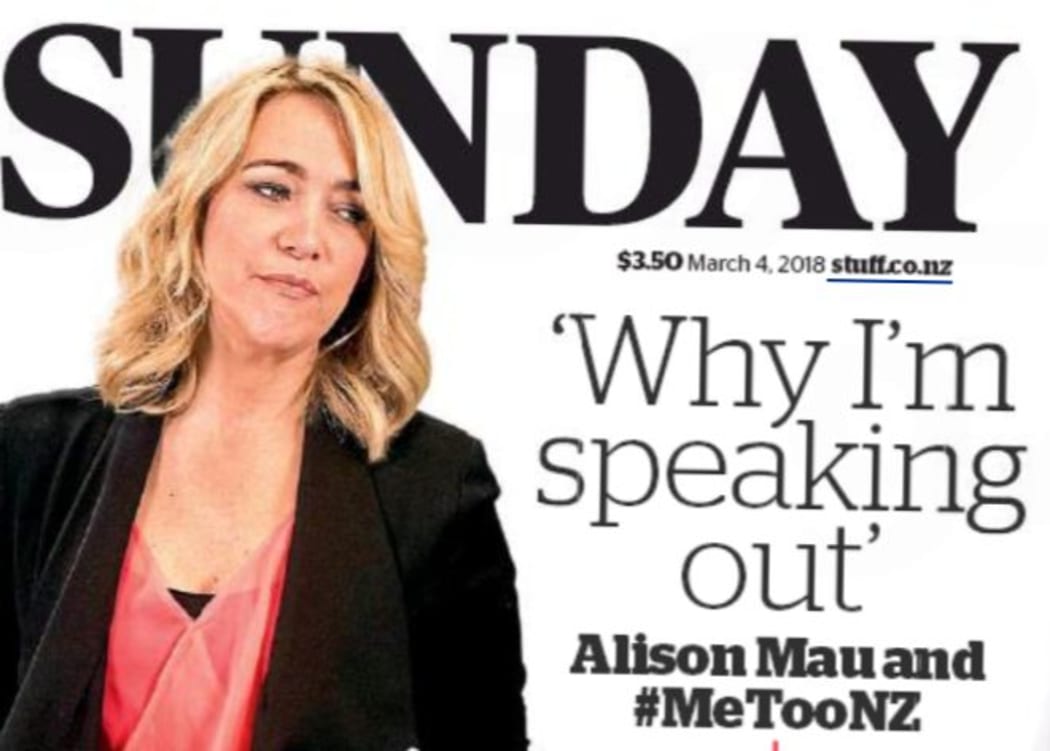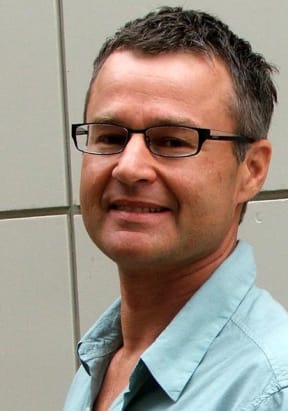Stuff added momentum to the #MeToo movement in 2018 with a campaign urging people who’d suffered sexual harassment and abuse to come forward and tell their stories to journalists. Some critics condemned it as "a witch-hunt" and even "McCarthyism", while others worried about the effects on people putting their painful personal stories forward in the media. Two years on, were those fears grounded?

Alison Mau on the cover of the Sunday Star Times launchng the #MeTooNZ campaign. Photo: photo / RNZ
When Stuff launched its #MeTooNZ campaign in 2018, there were some predictable objections.
Cartoonist Al Nisbet confusingly labelled it a “witch hunt after men”.
At Newstalk ZB, Mike Hosking spent an editorial branding the project tasteless and tacky.
“Apart from anything, a lot of the "Me Too" campaign is not about illegal activity such as serious sexual assault - the things you end up in court for. It's about hearsay, rumour, innuendo, scuttlebutt - sleaze and gossip,” he said.
“It's about alleged pinched bums, wolf whistles, and tacky one-liners. Not that any of those things is remotely acceptable - but they're not crimes and they're not front-page news.”
His view was backed up by PR advisor Janet Wilson, who thought the situation was analogous to the Red Scare.
“We’re getting into what used to happen in the 1950s… with the un-American activities. McCarthyism. The reds under the beds thing,” she told Newstalk ZB.
It later emerged that Wilson acted as an advisor to the law firm Russell McVeagh, which was embroiled in its own sexual misconduct scandal in early 2018.
But were these commentators’ fears founded?

Dr James Hollings Photo: Unknown
A study on the first two years of the #MeTooNZ by Massey University’s journalism programme leader Dr James Hollings was recently published by the international academic journal Journalism Practice.
It shows the reporters and executives involved in the campaign often had to go to painstaking lengths to get their stories published, often struggling to contend with New Zealand’s strict defamation law.
“Defamation law in New Zealand is draconian effectively. I think it’s one of the great shames of New Zealand at the moment,” Hollings says. “Journalists couldn’t just report on a case without... literally having to prove to a legal standard this was true. I thought that’s too high a bar to cross and certainly not a bar that we hold our politicians to.”
#MeTooNZ team leader Ali Mau says defamation concerns led her to change her approach to the campaign, refocusing it primarily on systemic issues surrounding sexual harassment rather than on naming abusers.
She also had to deal with the fact that workplaces commonly encourage survivors to sign non-disclosure agreements, or NDAs, about their abuse, often in exchange for payment.

Photo: RNZ / Cole Eastham-Farrelly
“Sometimes NDAs, or the payment that goes along with, are all a survivor is likely to get out of their complaint,” she says.
“But there is absolutely no doubt they are harmful to society because they allow a perpetrator who sometimes is guilty of multiple victimisations; it allows them to stay in the workplace and nobody is any the wiser and they can go on to victimise other people.”
Hollings says reporters on the #MeTooNZ campaign painstakingly investigated the stories they were given, and regularly engaged in honest, sometimes difficult conversations with survivors.
Some found themselves affected by their work, with one needing to seek counselling.
Their efforts were a rebuttal to the criticisms lodged by Hosking, Wilson and others before the campaign began, he says.
“Talking to the journalists who worked on the campaign, it was very scrupulous. They all raised that issue spontaneously. They were quite defensive if you like. They wanted to show they hadn’t done a witch hunt. And the way they proceeded to investigate each claim very thoroughly, I think they really put a lie to those claims.”

